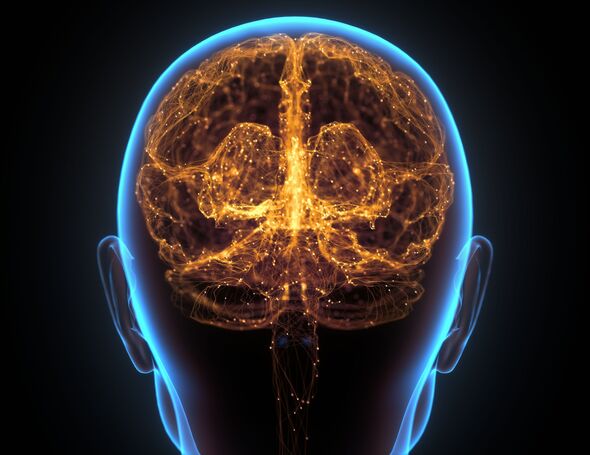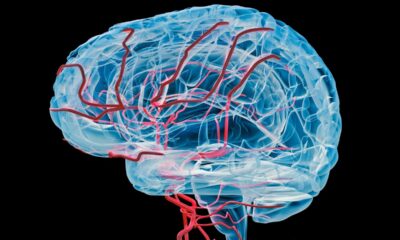Science
Scientists Uncover New Alzheimer’s Signs, Boosting Early Detection

Researchers from the Global Neurodegeneration Proteomics Consortium (GNPC) have made significant strides in identifying early warning signs of Alzheimer’s disease. Their findings, published in Nature Medicine, reveal crucial insights into how certain proteins in the body may serve as indicators for neurological disorders. This groundbreaking research received partial funding from Bill Gates, who expressed optimism that these discoveries could lead to a future where an Alzheimer’s diagnosis is no longer seen as a death sentence.
For decades, scientists have recognized that individuals with two copies of the APOE4 gene face a tenfold increase in their risk of developing Alzheimer’s. Until now, the mechanisms behind this link remained unclear. The GNPC team has now uncovered the role of APOE4 in the body’s inflammation and infection responses, both of which may contribute to the onset of the disease. Moreover, the researchers identified specific blood signatures that can confirm, with 99% accuracy, whether a person carries the high-risk APOE4 gene.
Promising Pathways for Treatment Development
The research aligns with the prevailing theory that Alzheimer’s is associated with the accumulation of proteins in the brain, specifically amyloid and tau proteins. According to Charles Marshall, a professor of clinical neurology at Queen Mary University of London, these findings could pave the way for new drug development efforts. “The most immediately exciting part is that the patterns of protein abnormality that predict neurodegenerative diseases reveal new insights into the biology of how these conditions develop,” Marshall stated.
The implications of this research extend beyond academic interest. Simon Lovestone, global head of discovery and translational research at Johnson & Johnson, emphasized that the scale and depth of the dataset, combined with harmonized clinical information, represent a remarkable resource. “This work will rapidly accelerate research into the field of neurodegeneration,” Lovestone noted, highlighting the transformative potential of these findings for studying, detecting, and treating neurodegenerative diseases.
A Collaborative Initiative for Progress
The GNPC was established in 2023 as a collaborative effort among various research institutions, supported by both Johnson & Johnson and Gates Ventures. This initiative aims to explore the complexities of neurodegeneration through advanced proteomics, ultimately striving to improve patient outcomes through earlier and more accurate diagnoses.
As researchers continue to delve into the biological underpinnings of Alzheimer’s disease, the hope is that these discoveries will not only enhance understanding but also lead to viable treatment options that could significantly impact the lives of millions of individuals affected by this condition. The journey towards defeating Alzheimer’s continues, backed by science and innovative collaboration.
-

 World2 weeks ago
World2 weeks agoCoronation Street’s Shocking Murder Twist Reveals Family Secrets
-

 Entertainment1 week ago
Entertainment1 week agoAndrew Pierce Confirms Departure from ITV’s Good Morning Britain
-

 Entertainment5 months ago
Entertainment5 months agoKate Garraway Sells £2 Million Home Amid Financial Struggles
-

 Entertainment4 months ago
Entertainment4 months agoAnn Ming Reflects on ITV’s ‘I Fought the Law’ Drama
-

 Entertainment1 month ago
Entertainment1 month agoCoronation Street Fans React as Todd Faces Heartbreaking Choice
-

 Health4 months ago
Health4 months agoKatie Price Faces New Health Concerns After Cancer Symptoms Resurface
-

 World1 month ago
World1 month agoBailey Announces Heartbreaking Split from Rebecca After Reunion
-

 Entertainment2 weeks ago
Entertainment2 weeks agoTwo Stars Evicted from I’m A Celebrity Just Days Before Finale
-

 Entertainment4 months ago
Entertainment4 months agoCoronation Street’s Carl Webster Faces Trouble with New Affairs
-

 World2 weeks ago
World2 weeks agoKevin Sinfield Exceeds Fundraising Goal Ahead of Final Marathons
-

 Entertainment4 months ago
Entertainment4 months agoWhere is Tinder Swindler Simon Leviev? Latest Updates Revealed
-

 Entertainment5 months ago
Entertainment5 months agoMarkiplier Addresses AI Controversy During Livestream Response





















